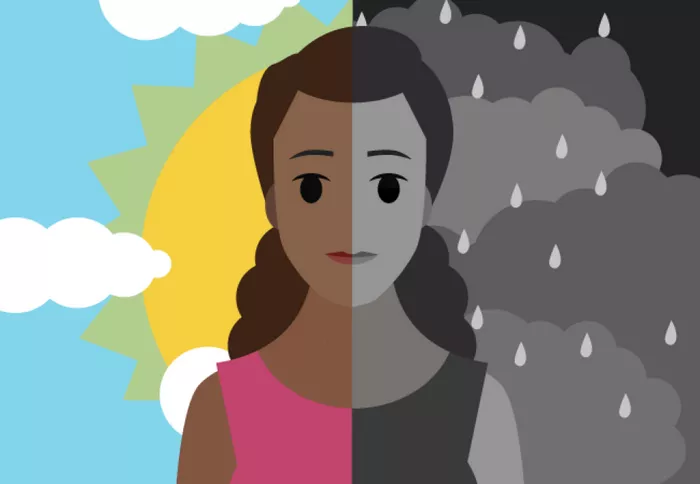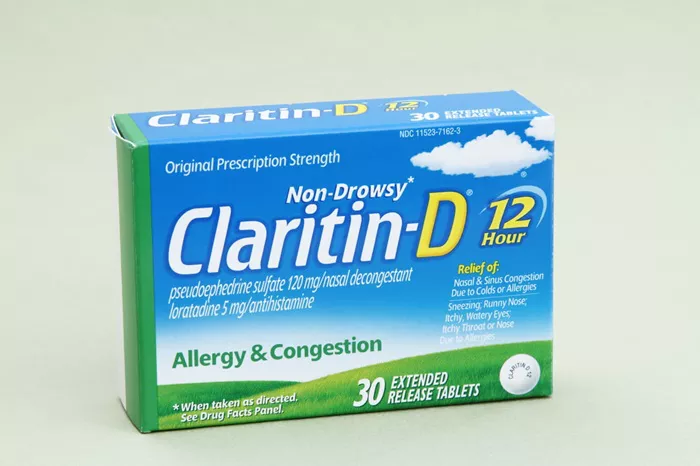Bipolar disorder, characterized by extreme mood swings including emotional highs (mania or hypomania) and lows (depression), presents unique challenges. These fluctuations can significantly impact various aspects of life, including relationships, work, and daily functioning. Understanding what one can and cannot do with bipolar disorder is essential for managing the condition effectively and maintaining a balanced life. This article explores the limitations associated with bipolar disorder and offers strategies for navigating them.
Understanding Bipolar Disorder
Bipolar disorder is a mental health condition that affects mood, energy, activity levels, and the ability to carry out daily tasks. It is classified into several types, including Bipolar I, Bipolar II, and Cyclothymic Disorder, each with distinct patterns of mood episodes.
Bipolar I Disorder
Bipolar I Disorder is characterized by at least one manic episode, which may be preceded or followed by hypomanic or major depressive episodes. Mania can be severe and sometimes require hospitalization.
Bipolar II Disorder
Bipolar II Disorder involves a pattern of depressive episodes and hypomanic episodes, but not the full-blown manic episodes that are typical of Bipolar I Disorder.
Cyclothymic Disorder
Cyclothymic Disorder involves periods of hypomanic symptoms and periods of depressive symptoms lasting for at least two years (one year in children and adolescents), but the symptoms do not meet the diagnostic requirements for a hypomanic episode and a depressive episode.
Limitations and Challenges with Bipolar Disorder
Living with bipolar disorder can impose various limitations, affecting personal and professional aspects of life. Recognizing these challenges is the first step toward effective management.
Unpredictable Mood Swings
One of the most significant challenges of bipolar disorder is the unpredictability of mood swings. These can disrupt daily life and long-term plans.
Impact on Relationships: Mood swings can strain relationships with family, friends, and colleagues, leading to misunderstandings and conflicts.
Work Challenges: Unpredictable mood changes can affect work performance, consistency, and reliability.
Difficulty in Maintaining Consistency
People with bipolar disorder often struggle with maintaining consistency in various aspects of life, from daily routines to long-term goals.
Work and Career: Fluctuations in energy and mood can make it challenging to sustain regular work hours and job performance.
Daily Routines: Establishing and sticking to daily routines can be difficult due to mood variability.
Impulsivity and Risk-Taking Behaviors
During manic or hypomanic episodes, individuals may exhibit impulsive behavior and engage in risky activities.
Financial Instability: Impulsive spending can lead to significant financial problems.
Legal Issues: Risk-taking behaviors can result in legal complications or endanger personal safety.
Cognitive Impairments
Bipolar disorder can affect cognitive functions, including memory, concentration, and decision-making abilities.
Memory Problems: Difficulty remembering tasks or appointments.
Concentration Issues: Challenges in focusing on tasks or maintaining attention.
Managing Limitations with Bipolar Disorder
While bipolar disorder presents significant challenges, there are strategies and treatments available to manage these limitations effectively.
Medication and Treatment Adherence
Adhering to prescribed medication and treatment plans is crucial for managing bipolar disorder.
Mood Stabilizers: Medications such as lithium and anticonvulsants can help stabilize mood swings.
Antipsychotics: These can be effective during manic episodes.
Antidepressants: Used cautiously, often in combination with mood stabilizers, to treat depressive episodes.
Therapy and Counseling
Engaging in therapy can provide essential support and coping strategies.
Cognitive Behavioral Therapy (CBT): Helps in managing negative thought patterns and behaviors.
Interpersonal and Social Rhythm Therapy (IPSRT): Focuses on stabilizing daily rhythms and improving interpersonal relationships.
Family Therapy: Involves family members in treatment to improve communication and support.
Establishing a Routine
Creating and maintaining a regular routine can help manage mood swings and provide a sense of stability.
Regular Sleep Schedule: Ensuring consistent sleep patterns to prevent manic or depressive episodes.
Scheduled Activities: Planning daily activities to create structure and predictability.
Healthy Lifestyle Choices
Adopting a healthy lifestyle can significantly impact the management of bipolar disorder.
Exercise: Regular physical activity can improve mood and overall well-being.
Balanced Diet: Eating a nutritious diet can support physical and mental health.
Avoiding Substances: Staying away from alcohol and drugs, which can trigger mood swings and interfere with medications.
Stress Management Techniques
Learning to manage stress effectively is crucial for individuals with bipolar disorder.
Mindfulness and Meditation: Practices that promote relaxation and reduce stress.
Time Management: Techniques to manage workload and reduce stress.
Support Networks: Building a network of supportive friends, family, and support groups.
Navigating Work and Career with Bipolar Disorder
Maintaining a career while managing bipolar disorder requires careful planning and support.
Finding the Right Job
Choosing a job that accommodates the needs of someone with bipolar disorder can make a significant difference.
Flexible Hours: Jobs that offer flexible scheduling can help manage mood swings.
Understanding Employers: Employers who are supportive and understanding of mental health issues can provide a more accommodating work environment.
Disclosing Bipolar Disorder at Work
Deciding whether to disclose bipolar disorder to an employer is a personal decision that requires careful consideration.
Pros and Cons: Weighing the benefits of understanding and accommodation against potential stigma.
Legal Protections: Understanding rights under laws such as the Americans with Disabilities Act (ADA) that protect against discrimination.
Workplace Accommodations
Requesting reasonable accommodations can help manage bipolar disorder at work.
Flexible Scheduling: Allowing adjustments in work hours during mood episodes.
Modified Duties: Adjusting job responsibilities to reduce stress and manage workload.
Remote Work: The option to work from home can provide a more comfortable and controlled environment.
Relationships and Social Life
Maintaining healthy relationships and a social life is essential but can be challenging with bipolar disorder.
Communication and Education
Open communication and education about bipolar disorder can help maintain healthy relationships.
Educating Loved Ones: Helping family and friends understand bipolar disorder to foster empathy and support.
Open Dialogue: Maintaining open lines of communication to discuss needs and challenges.
Building a Support Network
Having a strong support network is crucial for emotional and practical support.
Support Groups: Joining support groups for people with bipolar disorder to share experiences and advice.
Therapeutic Relationships: Building a strong relationship with a therapist or counselor for ongoing support.
Self-Care and Personal Well-being
Prioritizing self-care is vital for managing bipolar disorder and maintaining overall well-being.
Emotional Self-Care
Taking care of emotional health is essential for managing bipolar disorder.
Journaling: Keeping a journal to track mood changes and express emotions.
Creative Outlets: Engaging in creative activities such as art, music, or writing to manage stress and emotions.
Physical Self-Care
Maintaining physical health can have a positive impact on mental health.
Regular Exercise: Engaging in regular physical activity to boost mood and energy levels.
Healthy Eating: Following a balanced diet to support overall health.
Conclusion
Living with bipolar disorder involves navigating various limitations, but with effective management strategies, individuals can lead fulfilling lives. Understanding the challenges and implementing strategies such as medication adherence, therapy, establishing routines, and seeking support can help manage the condition effectively. By prioritizing self-care, maintaining a supportive network, and making informed choices about work and relationships, individuals with bipolar disorder can overcome limitations and embrace possibilities for a balanced and productive life.
[inline_related_posts title=”You Might Be Interested In” title_align=”left” style=”list” number=”6″ align=”none” ids=”9247,9239,9232″ by=”categories” orderby=”rand” order=”DESC” hide_thumb=”no” thumb_right=”no” views=”no” date=”yes” grid_columns=”2″ post_type=”” tax=””]


































